

Why Social Media is Not Smart for Middle School Kids. This guest post is by Melanie Hempe, RN, founder of Families Managing Media (link is external).
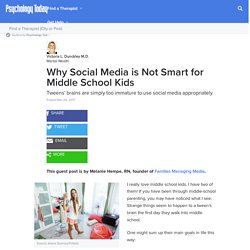
Source: Alena Ozerova/Fotolia I really love middle school kids. I have two of them! If you have been through middle-school parenting, you may have noticed what I see: Strange things seem to happen to a tween’s brain the first day they walk into middle school. How to (seriously) read a scientific paper. Adam Ruben’s tongue-in-cheek column about the common difficulties and frustrations of reading a scientific paper broadly resonated among Science Careers readers.
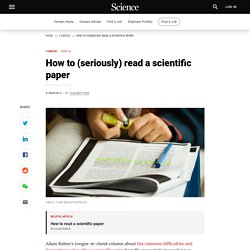
Uncannily Youthful At 67, He Embodies Antidote To Bummer 'Biggest Loser' Study. Youths bring lawsuits to push governments into helping stop climate change. SEATTLE, Wash. — Dozens of young people want a say in the planet's future.
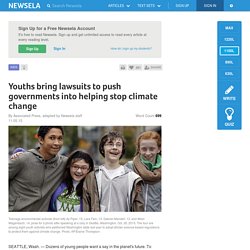
To make their voices heard, these young people — though not old enough to vote — have been suing states and the federal government to force action on climate change. The burning of fossil fuels, such as coal, oil and gas, creates greenhouse gases that heat up the Earth and change the climate. These youths say global warming will harm their generation the most. They believe the government should protect natural resources, including the atmosphere, as a "public trust" for future generations. In Seattle, eight youths between the ages of 10 and 15 are represented by the Western Environmental Law Center. Bringing Legal Action All Over America Our Children's Trust, a nonprofit organization based in Oregon, has been filing lawsuits or petitions in every state and against the federal government. The United States courts have so far not wanted to change the laws on climate, said Michael Gerrard. Meet 12 Badass Scientists…Who Also Happen to be Women — TED Fellows.
1.
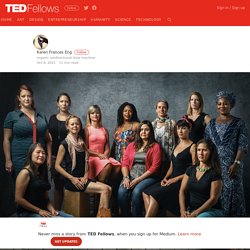
Renée Hlozek, cosmologist South African cosmologist Renée Hlozek studies the cosmic microwave background — radiation left over from the Big Bang — to better understand the initial conditions of the universe and how it grew into the structures, such as galaxies, we see today. “My field is about asking questions about the nature and evolution of the universe, fundamental to our understanding of ourselves,” Hlozek says. Scientists discover fossils from extinct, ancient ancestor of modern humans. The two men were amateur cavers who enjoyed the challenge of burrowing through dark and possibly dangerous caves.
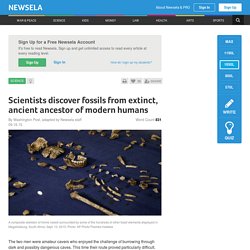
This time their route proved particularly difficult. They were exploring one of a group of caves in South Africa known as Rising Star. Their goal was an unexplored chamber deep underground. Most people believed the cave had already given up most of its treasures years ago. Still, American scientist Lee Berger had asked the men to keep their eyes open for ancient remains. Echolocation gives blind people a visual on the world. Ryo Hirosawa, who is blind, could not figure out what was in front of him.
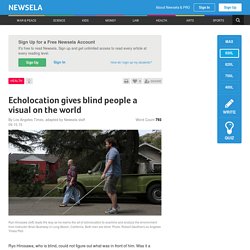
Was it a house, a car, a hedge, a fence, a tree or open space? Hirosawa pushed the tip of his tongue hard to the top of his mouth, and made a sharp click. As its echo came back at him, he couldn't quite figure out if it sounded scattered, as if it hit foliage or a chain-link fence. How Scientific American makes its infographics.
Flip through the pages of a scientific journal and you’ll find numerous figures, charts, and diagrams visualizing important scientific discoveries.
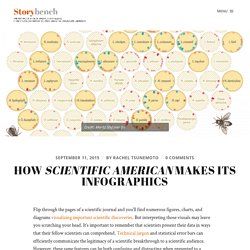
But interpreting those visuals may leave you scratching your head. It’s important to remember that scientists present their data in ways that their fellow scientists can comprehend. Technical jargon and statistical error bars can efficiently communicate the legitimacy of a scientific breakthrough to a scientific audience. However, these same features can be both confusing and distracting when presented to a wider audience. For the public to be excited and informed about the latest scientific breakthroughs, technical data visualizations need to be transformed into engaging visual stories that a wider community can understand.
Brain growth stunted in poor children, schoolwork suffers, scientists find. Growing up in poverty affects American children in a number of ways.
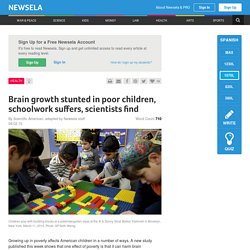
A new study published this week shows that one effect of poverty is that it can harm brain development. It has long been known that growing up poor is linked to poorer performance in school. The new study examines how poverty affects both school performance and brain development. It shows that growing up poor harms children's brain development. Twin panda births surprise National Zoo, though one cub later dies. Laurie Thompson was sitting at her desk in the National Zoo's giant panda house Saturday night, when she heard a noise from a video screen.
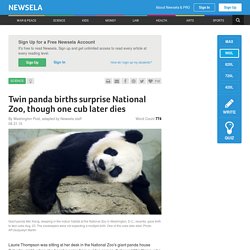
It showed Mei Xiang, who had delivered a cub about four hours earlier. Thompson, a biologist, looked at the screen, and there, wiggling and squawking on the floor, was a second cub. TweetDeck. State parks hope to tempt kids into nature, not Nintendo. WASHINGTON, D.C. — Some states want to get kids to unplug from computers and plug in to the outdoors at state parks.
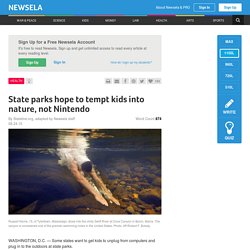
States such as Maryland, Minnesota, New Mexico and North Carolina are sponsoring activities for students. State governors have hosted campouts for young people and their families as part of a program called Capital Campouts. The programs have two goals: to encourage youth to be more active at a time when childhood obesity rates are climbing and to build younger Americans’ appreciation for nature and support for parks and conservation. “Young people need to have a healthy lifestyle and truly experience the nature of the world and not some virtual reality through a gaming device,” said Lewis Ledford. Why Does Corn Have Silk? Essay: How corn took spotlight in American diet, but not in Europe. Writer's block is our minds going blank. Like now. Scientists can prove it. Most of us have experienced what is called writer’s block at some point. We will sit down to write, paint or make music only to find we can’t get the creative juices flowing.
Most frustrating of all, the more effort and thought we put into it, the harder it becomes. Now at least, neuroscientists who study the brain might have found a clue about why it is so difficult to force that creative spark. Researchers at Stanford University recently set out to explore the origins of creativity in the brain and came up with surprising findings. Their study was published May 28 in Scientific Reports, a magazine for scientists. Playing Games With Our Brains The cerebral cortex is the brain's outer layer of tissue. Helping the bee and its habitat before the food chain gets stung. WASHINGTON — The humble bee is most famous for its buzz and sting.
While both a nuisance and threat, this insect is actually a very important piece of the American food chain. Many have been dying as they cannot find food to eat. Now, the president is stepping in to protect the creature as its habitat disappears. On May 19, the Obama administration announced the first National Strategy to Promote the Health of Honeybees and Other Pollinators.